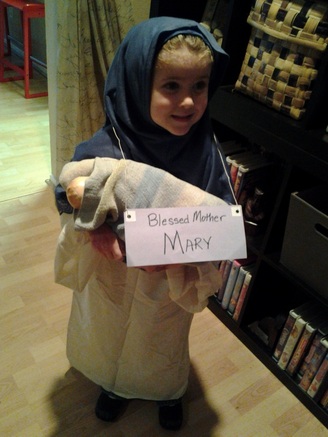
Knowing this, I’d have a plan in my mind before even entering her room. I’d go in planning to play the game we’d made up together.
The game would go like this: I would sit beside her on the floor so we were staring at each other through the slats of her crib. Then Reese would extend her right hand through the bars. As she stuck out her hand, I’d “bite” it and grunt. She’d then pull it back, smile, and giggle.
Even if we hadn’t played the game for weeks she would still remember it when it came time to play it again. Seeing Reese’s memory in action was wonderful, but it was also sobering.
There was and is a lot going on in her head. Her perspectives, her actions, her spirit were even then already being shaped by her memories. To paraphrase Charles Dickens, that is both the best of things and the worst of things. Some memories can lift us up. Others can strike us dead.
I read a few years ago about a Palestinian woman whose family fled their home while she was a child. A few years later they returned and the house had new, Israeli residents. The moment seared itself into her memory.
When she was interviewed, fifty years had passed and the woman still could tour the home in her mind. She could still remember in exquisite detail the house, its contents, and the emotions of her flight from it.
For all of us memory has immense power.
Sometimes I am hopeful of what Reese will remember from her earliest days. Other times I am fearful. Both sensations come from knowing full well that what we remember shapes how we see our God, our neighbors, and ourselves. Memory can either create life or drown it in darkness.
Every Sunday Christians hear the words of Jesus said again: “This bread is my body; broken for you. Eat in remembrance of me. This cup is my blood; shed for you. Drink in remembrance of me.”
What is being remembered? If we are honest (and not sucked in by all the golden, empty crosses) we remember the horror and injustice of Jesus’ execution. We remember that the broken body and shed blood are truly signs of failure, of betrayal, of political and military violence performed by the greatest nations of the day.
But we also know that what is being remembered is more than that.
Paul in 1 Corinthians says that “as often as you eat and drink, you proclaim the Lord’s death until he comes.” This suggests that what is being remembered is not simply failure, not simply death.
It is also a remembrance of Christ’s ability to return. It is a remembrance of the resurrection and the glory of Jesus. It is remembrance of the ongoing power of Easter.
It is the validation of Christ’s love as the presence of God restoring a cracked and crooked world. It’s a remembering of salvation, of God stepping fully into the bloody dirt of this world and making it new. It is a remembering that becomes celebration because Jesus is no longer in the grave, and he will come again. And his life is shared with even people like us.
I was asked recently how being a Christian, and specifically a pastor, influences the way I look at death with all of its tears and caskets and funerals.
My honest answer has to do with memory. As a Christian, in the face of death I seek to remember the story of Jesus. I seek to remember Christ’s story not just as a history lesson, but as a present-day call to hope. That hope does not mean I try to forget the power of death with its griefs, failures, betrayals, and violence. Remembering the Cross of Jesus will not allow that.
But I also seek to remember resurrection. Remembering the Empty Tomb demands this of me. In essence, when faced with death, I seek to do what I do every time I gather at the Table of Christ. I seek to remember Jesus saying, “This is my body…This is my blood…for you….”
I pray this crucified and risen Jesus will shape Reese’s memory from her first years on. And, I pray that same Jesus will shape your memories too.
 RSS Feed
RSS Feed